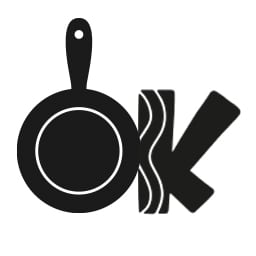Currently, I’m on 100 Day Chef Stage, touring different Michelin starred restaurants in the World. Read about chef life; the mistakes I make, the lessons I learn and the characters I meet, as I learn from some of the best chefs in the world. (My journey so far.👉)
Chef Stage: Day 7
Restaurant: El Monastrell, Alicante, Spain (1 Star Michelin)
Chef de Cuisine: Maria José San Roman::
Website: El Monastrell
Location: Google Maps
Chef Stage, Day 7
Knife skills are the focus of Day 7 of the Chef Stage I’m on. That and understanding technique comes before speed:
Knife Skills, Go as fast as you can but no faster
“I’d prefer it if you went slower and did a good job,”
Victor tells Fran and me as we chop the beetroot.
We are slicing the beetroot into perfect 2mm cubes. Later the tiny purple cubes will be mixed with equally perfect green asparagus cubes, quickly blanched, refreshed, and topped with a creamy egg yolk that has been cooked precisely at 63 degrees. It is one of the starters on El Monastrell’s tasting menu, and it looks spectacular.
Well, usually, it does.
In our attempt to copy Victor, we’ve gone way too fast for our skill level, and we’ve massacred the beetroot.
Earlier, Victor had demonstrated how he wanted it to look.
Brunoise
Effortlessly with a rolling chop, he’d julienned thin strips. Then turning the pieces through 90 degrees, he’d sliced again leaving a neat brunoise of tiny identical squares. He’d made it look easy.
Victor picks up our unalike and unequal chunks, lets them drop from his hand back to the board and shakes his head, unimpressed.
He shows us again.
Perfect uniform strips emerge, as he guides the knife across the beetroot in a fast rolling chop. He is not even looking down at what he is doing, but talking to us as he slices.
What of course he doesn’t say is that it has taken 10 years of hard graft to get to this level. Skill is often disguised in this manner. If someone makes something look easy, then you can bet that behind that proficiency it is years of practice and repetition.
Yesterday, I had some time to observe the others as they worked in the kitchen. There’s a definite divide between the experienced and inexperienced chefs. It’s in the subtleties. Like the way, Federico, the head chef with more than 20 years experience under his hat, instinctively curls the sauce spoon to catch the drip before it hits the plate. Or how Victor switches off the pressure cooker, while he answers someone across the room simultaneously removing a boiling pan from the stove without missing a beat.
Unlike the rest of us, these chefs rarely change their pace, rarely do they speed up, and hardly ever do they come to a complete stop, as one job finishes they move fluidly into the next.
Whereas us inexperienced chefs repeat unnecessary movements. We waste trips to the fridge, reopen drawers to find ingredients, we speed up when we panic and come to complete standstill as we think out the next task.
There are no shortcuts to becoming skilled. You can’t just copy the end result. If you want knife skills, then you need to practice. Only when your skill improves, will your speed.
Go as fast as you can, but no faster.
“I’d prefer if you do it correctly and slowly like this until you get the technique right.”
Victor slows his action down. It’s the same easy, flowing rolling chop but now we can see each stage of the technique.
Becoming a
Rather like learning any judo technique – you need to learn the full movement, slowly and thoroughly. The temptation when time is short is to cut corners, but before you do, you need to know which ones to cut – or you might be cutting off more than you bargained for.
Knife cuts
“Never sacrifice technique,” Victor tells us, and then he stops, puts down the knife and shows us his thumb. The tip of the thumb is missing, a jagged scar runs all the way to the nail.
“Good job my nail was there, or I’d have taken the whole thumb off.”
As Victor walks off, we return to the task.
Checking our thumbs are well tucked in, we slow r
Follow Nicola Fairbrother on Instagram
El Monastrell, Alicante
Day 1 – What’s an Olympian doing in a kitchen anyway?
Day 4 – Why work for free?
Day 7 – Knife Skills, go as fast as you can but no faster
Day 10 – Mugaritz: You don’t have to like something to like it
Day 12 – The best paella recipe, in the world
Day 14 – Chef Life, it’s not all liquid nitrogen and lobsters

